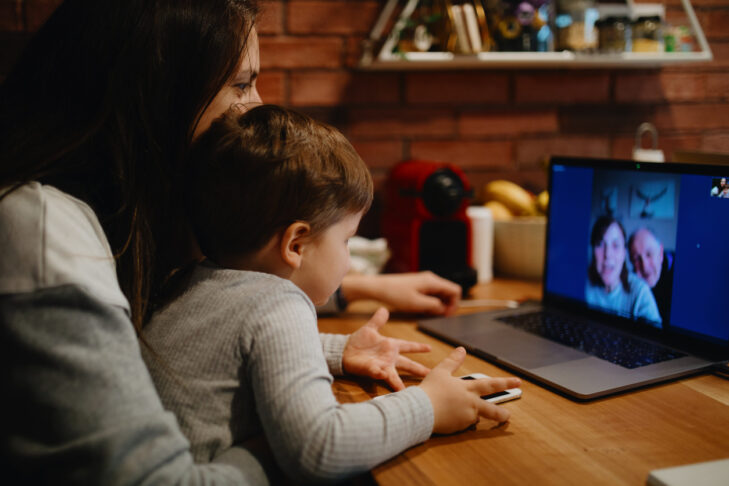Recently, I wrote an article in The Boston Globe about how to keep grandchildren and grandparents connected during this bizarre period, when kids might be glued to their iPads and grandparents haven’t quite mastered the subtle art of Zoom. The bottom line: There are lots of ways to connect, maybe even more meaningfully than before, if you’re willing to think creatively.
I also have aging parents of my own; they’re not elderly, but they’re not getting any younger, and it’s important to me that my kids stay in touch. It’s something I think about a lot. They used to see my kids every Friday; now, they cruise up in their Subaru and park in front of our house while the boys ride their bikes in circles around the car or chat from six feet away on the front steps while eating their peanut butter sandwiches. It’s sad, and it’s strange, and it’s changed the nature of their relationship.
So, this is a topic I’ve researched quite a bit, and something I’m still trying to get right. Happily, people are adapting and innovating. Humans are resilient, and we possess more coping skills than we realize. I think about the Seder in a Box program that CJP initiated over Passover, distributing meals to elderly or ill people who couldn’t leave the house to shop or gather with family. I think about the CJP Coronavirus Emergency Fund, which, among other things, provides groceries and kosher goods for the elderly. I think about Ethos Meals on Wheels, whose drivers provide kosher and other ethnically tailored meals to the elderly, as well as a friendly check-in. I think of Steve Peljovich at Michael’s Deli in Brookline, who is hand-delivering meals himself every day so people don’t have to risk their safety by going out. Deli at your doorstep? That’s generosity.
- Conversation is sustenance, too. Congregation Mishkan Tefila (partnering with 2Life Communities, The Rashi School, Hebrew SeniorLife, BU Hillel, Gann Academy and CJP) launched an intergenerational buddy system to match Boston-area seniors with housebound college students, high-schoolers and young professionals for twice-weekly phone calls. (Sign up at 617-332-7770.)
If writing is more your speed, you can make “thinking of you” cards for isolated older adults through Jewish Family & Children’s Service, which provide a familiar brand comfort since this generation is accustomed to getting mail. (To sign up, contact Sue Spielman at sspielman@jfcsboston.org.)
And HebrewSenior Life is encouraging kids to make posters and cards for delivery to residents. Grown-ups can donate to an emergency fund to help purchase protective equipment, facilitate food deliveries, expand technology and more.
On a personal level, I’ve learned a few things, too. Timing is important, and quality beats quantity. I’ve given up trying to pry my kids away from TV or a video game to come to the phone with their grandparents, just to squeeze it in. Now, I try to time my kids’ check-ins between activities so they’re not distracted. I also encouraged my third-grader to begin writing letters to my mom. He shares things on paper that he might not over the phone, and he practices spelling. Plus, he feels special when he gets a letter back. Meanwhile, he plays iPhone chess with my dad. It’s a low-maintenance, fun way for him to connect and to build a skill. They’re also cooking their other grandmother’s apple muffin and pierogis recipe, and proudly (OK, awkwardly) donning the masks she sewed. Any connection counts, right? Most important, I’m trying to meet my kids where they are to make the most out of these virtual interactions so they feel as organic as possible.
I’ll talk more about this on April 28 at 2 p.m. during JewishBoston’s live webinar, which will focus on the unique ways people in our community are helping older family members and friends during the coronavirus pandemic. Tune in, and bring your ideas!
Never miss the best stories and events for families, children and teens! Get JewishBoston Plus Kids.




